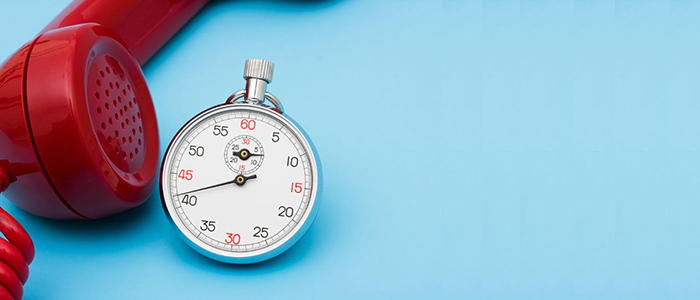 It shouldn’t surprise me anymore, but it does. When a potential coaching client contacts me, I often ask two questions, “How did you find me?” and “What made you interested?” Ninety percent of the time, the answer to the first question is “I Googled ‘career coach.” No surprise, I work hard to make it easy for people to find my business and me. It’s the second answer that’s shocking, “Well you were the only person who called back.” What? My colleagues are spending considerable time and money grabbing the attention of potential customers and when they do get someone’s eye, they fail to respond? It’s shocking, but good for my business.
It shouldn’t surprise me anymore, but it does. When a potential coaching client contacts me, I often ask two questions, “How did you find me?” and “What made you interested?” Ninety percent of the time, the answer to the first question is “I Googled ‘career coach.” No surprise, I work hard to make it easy for people to find my business and me. It’s the second answer that’s shocking, “Well you were the only person who called back.” What? My colleagues are spending considerable time and money grabbing the attention of potential customers and when they do get someone’s eye, they fail to respond? It’s shocking, but good for my business.
This whole lack of responsiveness has caught my attention almost to the point of distraction. We blame it on too much information — too many e-mails, too many sites, too much social networking. Maybe true, but not necessarily a justifiable excuse for failing to get back to someone. Now don’t get me wrong, there are people and companies (hello Verizon) who would love for me to take their call, read their e-mail, and/or return it. The same is true for many Internet marketers. Guess what? I’m never going to. I have nothing to benefit from putting effort into their requests. On the other hand, it is clear to me there is too much to gain from being a conscientious responder not to make it a priority.
As I dug deeper into the behavior, it seemed there was a connection between responsiveness and success or failure. I am not talking about how much trouble you could get into if you fail to get back to a senior person, that’s obvious. I’m referring to your everyday approach and attitude toward answering someone’s questions, confirming an appointment, or updating changes and how much it adds to your value.
I started to think about the most successful people I know. Is it coincidence these successful adults always respond to my e-mails or calls? Even if it’s just a “See you at 10 am” or “Need to research more, will get back to you,” or “received your e-mail, giving it some thought, and will respond in full tomorrow.” It’s an action that gives receivers a sense they are being heard and valued. With non-responders or late responders, I have the feeling our communications has gone into a black hole or that I am being ignored. It can feel rude and as some my colleagues’ behavior shows, it is probably stupid.
Here are a few disciplines that have worked for others and me:
- Create a reply protocol. What that means is set a reasonable time frame in which you will, at least initially, respond to contact. Many organizations place this at 24 hours. I try to maintain a tighter deadline for present and past clients, knowing they often contact me between sessions, wanting some immediate feedback. It’s good business.
- Set aside reply times. Depending on your work pattern, it can range from every fifteen minutes, an hour, to probably a minimum of twice a day. If you can’t keep to that time frame, maybe because you’re flying cross country, it’s generally a good idea to have an e-mail auto response and message on your voicemail that says you are not available until ____. The other option is to have someone you trust monitor your in-box while you’re away.
- Design a few reply templates. By doing this, you don’t have to wordsmith an answer each and every time you answer the same request, “Received your e-mail and will get back to you by ____.”
- Set your reply priorities. I always joked that if my father called me at work, I would return his call first. Not for any other reason but that he never calls me at work unless it’s an emergency. For other people in my life, the ones who think nothing of picking up the phone or shooting me an e-mail during the day to chat, I have to be more discerning. Surely, in my corporate life, hierarchy played a role but so did new employees, team members, and people who left a compelling message. Who and what are your priorities?
- Devise a system of highlighting important messages. I use color flags, other people create folders, while some people transfer important messages to reminder boxes. Sometimes I even put them on my phone, since that box always seems the emptiest. Whatever system you develop (or start to develop), use it consistently.
- Finally, set aside enough time. It’s hard to answer any form of correspondence in 10 seconds without being blunt, incomplete, and seemingly distracted. Set aside real time to address your mail. It often takes more than you expect. Setting a deadline, say fifteen minutes, also helps you plow through a group.
People not getting back to one another has reached epidemic levels. It has little to do with age, gender, level, or even workload. Regardless of the profile or the reason, it’s bad business, not to mention it is not great for your personal life if you carry the same behavior there as well. Set some standards for yourself — time, who is a priority, efficient ways of responding, and an attitude that connecting with others is essential and beneficial.
Leave a Reply